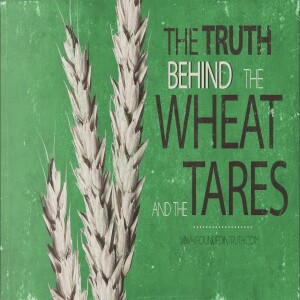

The Parable Series - The Truth Behind The Wheat and the Tares
In a sermon by Matthew Vander Els from Founded In Truth Fellowship, the parable of the wheat and the tares is explored, emphasizing the Kingdom of God and its implications for believers. The central theme revolves around understanding the Kingdom of God as something already present yet not fully realized, crashing into a world filled with brokenness and destruction.
The Parable: Sowing Seeds and the Enemy's WorkThe parable, found in Matthew 13:24-30, tells of a farmer sowing good seed, but an enemy sows weeds (tares) among the wheat. The servants ask if they should pull out the weeds, but the farmer instructs them to let both grow together until the harvest. At harvest time, the weeds will be gathered and burned, while the wheat will be gathered into the barn.
Understanding the KingdomThe Kingdom of God was highly anticipated in the first century, with people expecting God to send a king to rule over Israel and fulfill past promises. Yeshua (Jesus) proclaimed that the Kingdom of God was not a future event or a specific location but was happening "now," crashing into a broken world. This Kingdom is about God's plan of redemption, restoring heaven and earth to each other, despite humanity's eagerness to seek autonomy from God and not resist evil.
Historical Context: Revolutionaries and ViolenceIn the first century, many messianic figures sought to bring about God's kingdom on earth. Many believed this could be achieved through violence, attempting to overthrow the Romans and cleanse the land of sinners. However, Yeshua warned against using the tactics of the world (pagan tactics) to usher in the Kingdom of God. He asserted that the Kingdom of Heaven would progress slowly, with the world of brokenness existing alongside a world of healing until God declares the fullness of His reign.
The Nature of Weeds (Tares)The weeds in the parable are identified as "Darnell" (zizania in Greek), a poisonous weed that was a significant problem in the Roman Empire. Darnell is almost indistinguishable from wheat before it blooms, symbolizing how evil can be difficult to discern. The servants' question, "Why are there weeds growing here?" reflects the frustration and anger people feel when evil and suffering exist in God's world.
The Farmer's Wisdom: Growing Wheat, Not Whacking WeedsYeshua's response to the problem of evil is not to focus on eliminating the weeds but to concentrate on growing the wheat. This means that believers should focus on embodying and representing the Kingdom of Heaven. Trying to eliminate the weeds (evil) can lead to uprooting the wheat (good). The focus should be on personal growth and representing God's kingdom, allowing God to deal with evil in His own time and way.
Practical Application: Being Wheat in a Weedy World- Focus on Personal Growth: Strive to embody the qualities of the Kingdom of God: love, mercy, forgiveness.
- Discernment: Be aware that evil is an outsider and invader in God's kingdom.
- Avoid Self-Righteousness: Recognize that the mission is not to judge and condemn others but to show them what the Kingdom of God looks like.
- Be the Example: Instead of trying to eliminate those perceived as "weeds," show them what it means to be "wheat" by living out the values of the Kingdom.
- Hope in Suffering: Remember that God has not forgotten those who are suffering and that He has promised a day when justice will prevail, and all pain and suffering will be no more.
- Examine Your Heart: Ensure that your passions and energy are directed toward God's kingdom and not toward selfish agendas or worldly concerns.
- Forgive and Love: Practice forgiveness and love, even toward enemies, because the Kingdom of God is characterized by reconciliation and not brokenness.
- Live Above the Weeds: Refrain from engaging in behaviors and attitudes that are contrary to the values of the Kingdom, such as gossip, hatred, and violence.
Despite the presence of weeds (evil and suffering), God promises that there will be a day when He will deal with them. Those who remain faithful (the wheat) will be vindicated and will shine like the sun in the Kingdom of their Father (Matthew 13:43).
Living Out the Kingdom NowThe sermon encourages believers to live out the hope of God's kingdom now, forgiving, loving, and showing mercy. Just as Yeshua taught, we are called to represent God's kingdom in our actions and attitudes, trusting that God will ultimately bring about His justice and reign. This is not our garden to destroy, but to nurture and grow.
For more Bible Teachings, visit our teachings page.
References- Matthew 13:24-30
- Matthew 13:43
- The Bible
- Foxe's Book of Martyrs
- Square Foot Gardening
Note: This article contains affiliate links.
More Episodes
All Episodes>>You may also like
Create Your Podcast In Minutes
- Full-featured podcast site
- Unlimited storage and bandwidth
- Comprehensive podcast stats
- Distribute to Apple Podcasts, Spotify, and more
- Make money with your podcast












